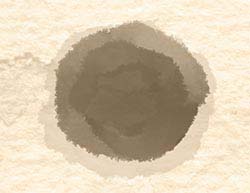In “The Philosophy of Composition” Edgar Allan Poe says, “It is the excess of the suggested meaning—it is the rendering this the upper instead of the undercurrent of the theme—which turns into prose the so called poetry of the so called transcendentalists.” I read that opinion after I had found Emerson’s “Nature,” the essay in which the Transcendentalist credo is detailed. Either Poe was totally unaware that in parts IV and V of the essay, respectively entitled ‘Language’ and Discipline,’ Emerson exampled the basic principles and origins of poetic language; and that those dicta were precisely and even startingly the method of Poe’s own poetic prose, especially in “Ligeia;” or Edgar Allan’s barb left a smarting hook or two in his own hand when he tossed it. Blindness? Stubbornness? No matter, what.
Emerson writes, “Words are signs of natural facts.” He elaborates and then adds, “As we go back in history, language becomes more picturesque, until its infancy, when it is all poetry; or all spiritual facts are represented by natural symbols.” Poe might have been Emerson’s pupil, for of Ligeia he rhapsodizes, “…I derived, from many existences in the material world, a sentiment such as I felt always aroused within me by her large and luminous orbs. Yet not the more could I define that sentiment, or analyze, or even steadily view it.” That’s Emerson’s own perfect and precise premise.
Now Poe details it. “I recognize it, let me repeat, sometimes in the survey of a rapidly-growing vine—in the contemplation of a moth, a butterfly, a chrysalis, a stream of running water.” Satisfying, that: to see two consciously opposing minds unconsciously(?) concur, to produce satisfying literature. It is the excess of Poe’s suggested meaning here, I think, that turns into poetry the so called prose of the so called short story writer.
